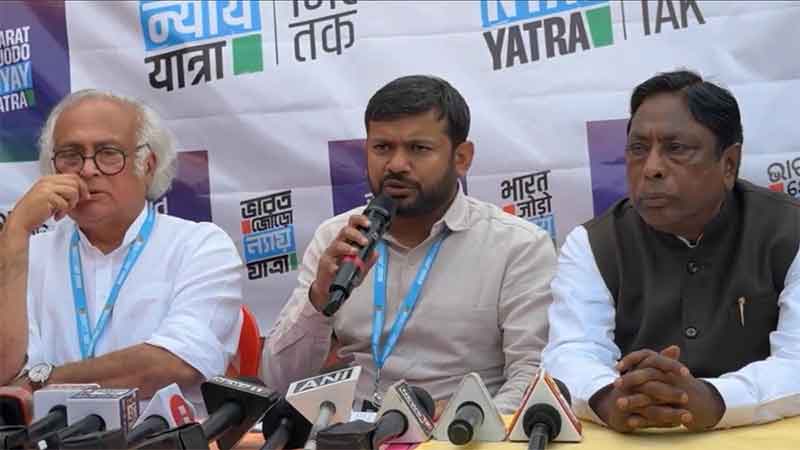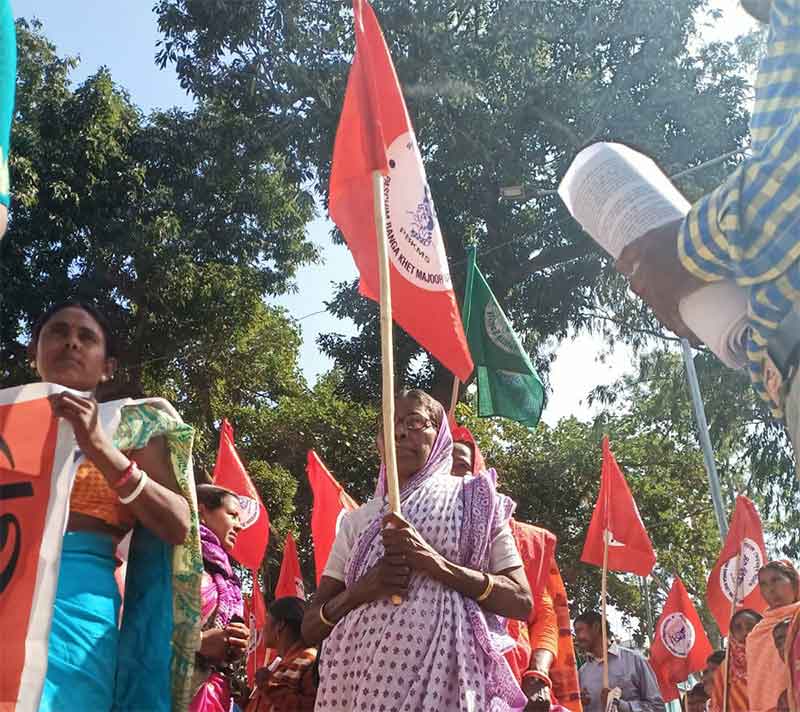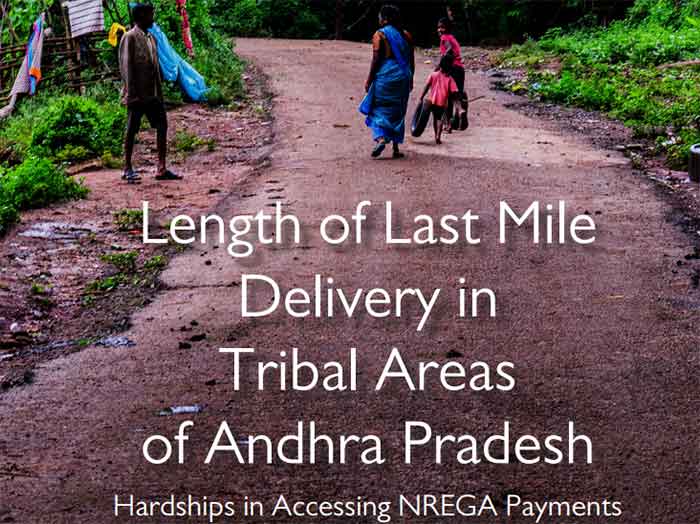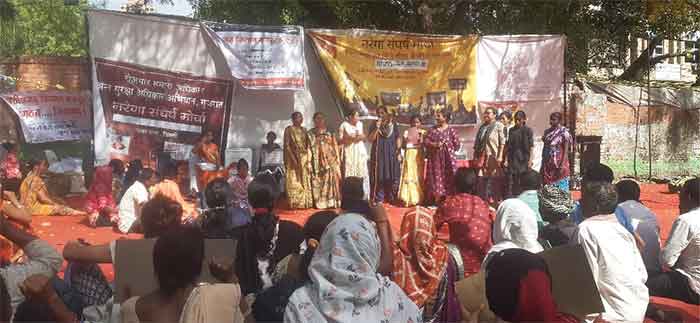A death due to sunstroke and a snake bite were reported this week in Telangana

Introduction:
The country continues to witness horrible incidents happening to MGNREGA workers. MNREGA is a job guarantee scheme enacted by legislation on 25 August 2005. The scheme provides a legal guarantee for one hundred days of employment in every financial year to adult members of any rural household willing to do public work-related unskilled manual work at the statutory minimum wage of Rs.100 per day, which is increased to Rs. 300 in 2024 for the state of Telangana.[1] The Central Government outlay for the scheme was Rs. 39,100 crore ($8 billion) in FY 2009-10. This act was introduced with the aim of improving the purchasing power of rural people by providing semi or unskilled work to people living in rural India, whether or not they are below the poverty line. Around one-third of the stipulated workforce is women. The scheme aims at providing the right to work for every citizen in India. But one has to note that the right to work includes the right to safe work also. That is, every labourer has the right against hazardous employment. It also means that every worker has the right to fair remuneration, forced labor also includes if less than minimum wage is paid. Speaking about MNREGA in general, the scheme consists of works which are risky and hazardous, and many laborers are victims of its perilous consequences. They are not paid properly as well, which even adds fuel to the fire.
In a recent incident in Nizamabad, Telangana, a 38-year-old woman labourer died due to heatstroke in Navipet mandal of the district on 16/04/2024. According to reports, R Lavanya collapsed while taking up repair works on a pond under the MGNREGA programme near Lingamgunta in the Mandal centre. She was rushed to a nearby government hospital, where she died while undergoing treatment. [2]
Similarly, in another such incident, a woman killed a snake that bit her and took it along with her to a government hospital in Mukunuru Palem village of Venkatapuram Nuguru mandal of the district on 15/04/2024. Santhamma, a resident of Mukunurupalem village, was bitten by the snake while she was engaged in MGNREGA work. Carrying the dead snake in a plastic bottle, she arrived at the government hospital seeking medical assistance. She wanted the doctors to identify the snake and provide her with the necessary treatment. She was treated after the doctors determined the snake was poisonous. [3]
This is in clear violation of the fundamental right of the workers, which is guaranteed by the Constitution of India in Article 23, which emphasizes the importance of protecting individual freedom and dignity, ensuring that no person is subjected to exploitation or degrading conditions of work. It safeguards the right to receive fair and reasonable remuneration for work done. The objective of Article 23 is to eradicate practices that exploit and subjugate individuals, particularly vulnerable sections of society. It upholds the principles of equality, justice, and respect for human rights. Also, article 21 emphasizes the right to dignity, which implies the right to work with dignity. It means that every person has the inalienable right to work with a dignified life without discrimination. They are entitled to claim equal respect from the state as well as from other persons.
Problems associated with the scheme:
There are several allegations against the scheme that they pay less than just Rs. 300 and also on lack of proper facilities at the workplace. Due to this, the primary objective of the act, which is to suffice the concerned worker’s family with sufficient income, is not fulfilled. Firstly, India is a country which is heating up highly and people are vulnerable to extreme weather situations. It is obviously a hot tropical country, which means that relevant measures have to be taken in order to facilitate work under such heat. Most of the laborers under MGNREGA scheme are supposed to work in bare fields and open lands, where they are directly vulnerable to the sun. When the question of whether the Government has provided facilities accordingly to protect themselves from the heat and extreme weather is raised, the answer is always a no. Secondly, the work they undertake is prone to various risk factors and can even result in perilous consequences. Though the workers have knowledge about it, they have no choice other than to work since they do not find any other means of income or breadwinning. Such hazardous work conditions should also be avoided to be assigned, or, at least proper safety measures and facilities have to be provided to the workers in order to ensure they do not face such risks. For example, there must be a first-aid box available at the work site to provide medical assistance to needy workers at the work site if they get injured while at work. Importantly, life-saving medicines must be kept at the work site because workers may get bitten by poisonous reptilians while clearing bushes. In a job where there is no legal guarantee and no proper wage supply, these issues have to be immediately addressed.
Schedule II of the MGNREGA Act provides for proper facilities for the safety of the workers, which include the facilities of safe drinking water, shade for ‘ children and periods of rest, a first aid box with adequate material for emergency treatment for minor injuries and other health hazards connected with the work being performed shall be provided at the work site.
In order to address such issues, the National Human Rights Commission, which claims to be fully Paris Principles in protecting and promoting human rights, must initiate suo moto action to recommend compensation for the victims and recommend rules for the safety of workers working under such schemes of the government. The NHRC is also requested to provide relevant compensation for the victims of the aforementioned incidents and make sure such incidents do not occur again.
Shreshta B is a student of Tamil Nadu National Law University, 1st year B.Com LLB (Hons), studying in the first year of a five-year law program.
[1]https://indianexpress.com/article/india/new-mgnrega-rates-goa-sees-highest-hike-of-rs-34-per-day-up-uttarakhand-lowest-at-rs-7-9236985/#:~:text=In%20Karnataka%2C%20the%20new%20NREGS,during%20the%20current%20financial%20year., (18/04/2024)
[2] https://telanganatoday.com/woman-kills-snake-that-bit-her-takes-it-to-hospital, (18/04/2024)
[3] https://telanganatoday.com/woman-kills-snake-that-bit-her-takes-it-to-hospital, (18/04/2024)
















































